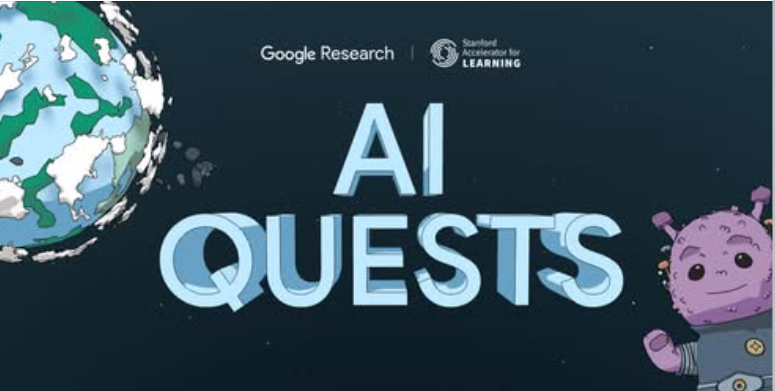🎮 Google has launched a new educational project, AI Quests – a free interactive game that explains the fundamentals of artificial intelligence through cutscenes, puzzles, and real-world practical cases.
Unlike traditional textbooks, this is an educational quest format: students aged 11 to 14 dive into the world of Google research and get the chance to step into the role of scientists. Instead of theoretical concepts, they work on real tasks currently handled by specialists: flood forecasting, disease diagnosis, and climate data analysis.
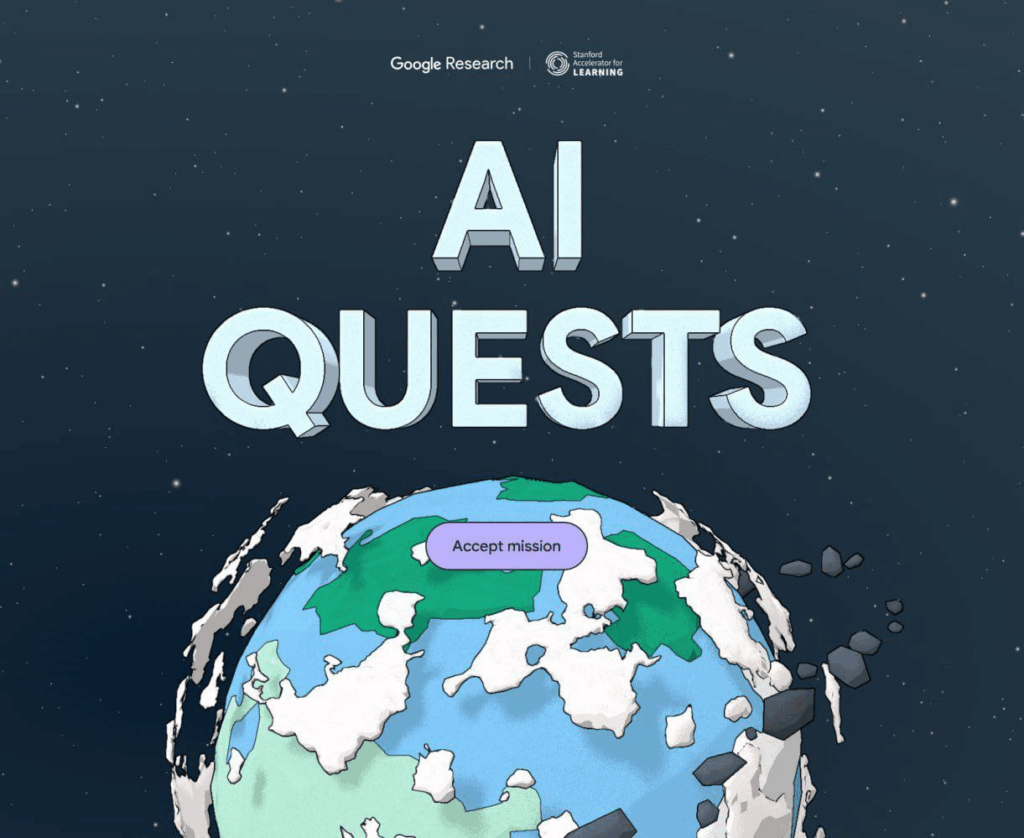
How the project works
AI Quests combines gamification elements with educational content. Players complete tasks, try different strategies, make mistakes, and adjust their actions. A virtual mentor, Professor Skye, guides participants, explaining key neural network concepts and helping them reflect on their experience.
In short:
- Game format – cutscenes, tasks, and step-by-step missions.
- Puzzles and mistakes – players can experiment, fail, change approach, and learn from experience.
- Built-in mentor – virtual Professor Skye explains AI basics in simple language.
- Real-world cases – climate, medicine, and science, where AI is already applied today.
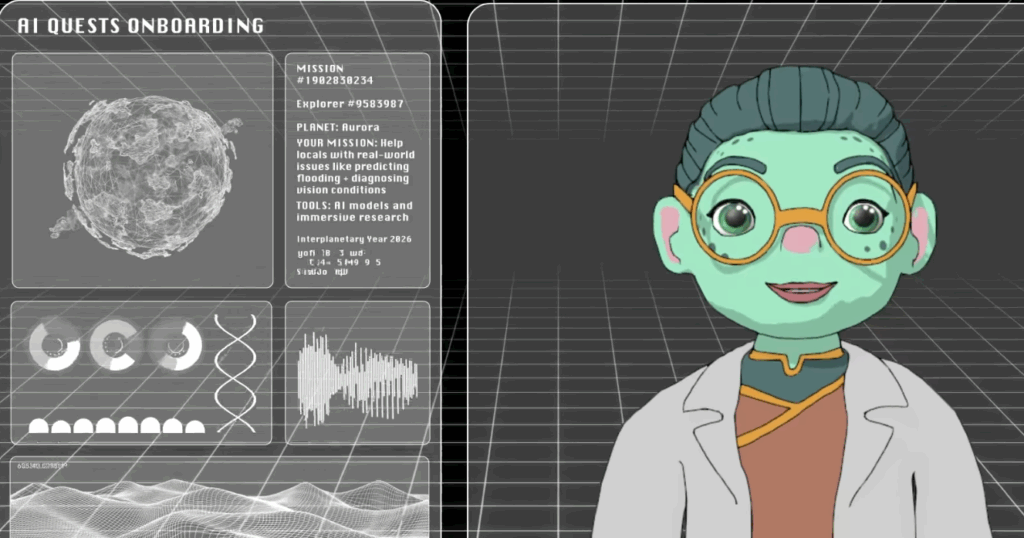
Who the game is for
The primary audience is middle school students. Teachers get access to a full set of teaching materials: lesson plans, supplementary materials, and video lectures from Google Research specialists.
The program can be integrated into school courses or used as a standalone educational tool. It is already being incorporated into global AI literacy initiatives, including Experience AI (Google DeepMind and Raspberry Pi Foundation) and CRAFT (Stanford Accelerator for Learning).
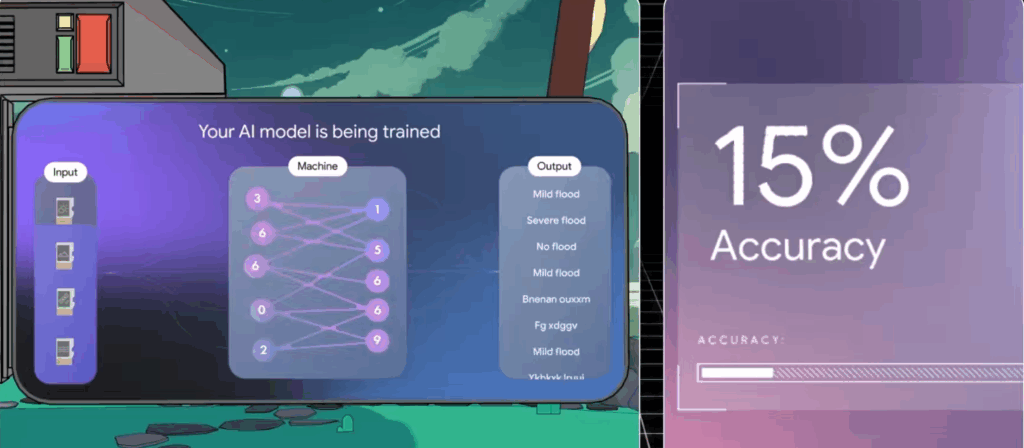
Why it matters
Google aims to develop AI literacy in the next generation. It’s not only about teaching students the basic principles of artificial intelligence, but also about developing the ability to use AI to solve real-world problems. The course helps students understand practical applications of technologies, the value of data, model training logic, and AI limitations.
Children do not just learn how neural networks work – they learn to apply them to solve real human problems. It’s not “rote learning of technology,” but inspiration: artificial intelligence as a tool to make the world better.
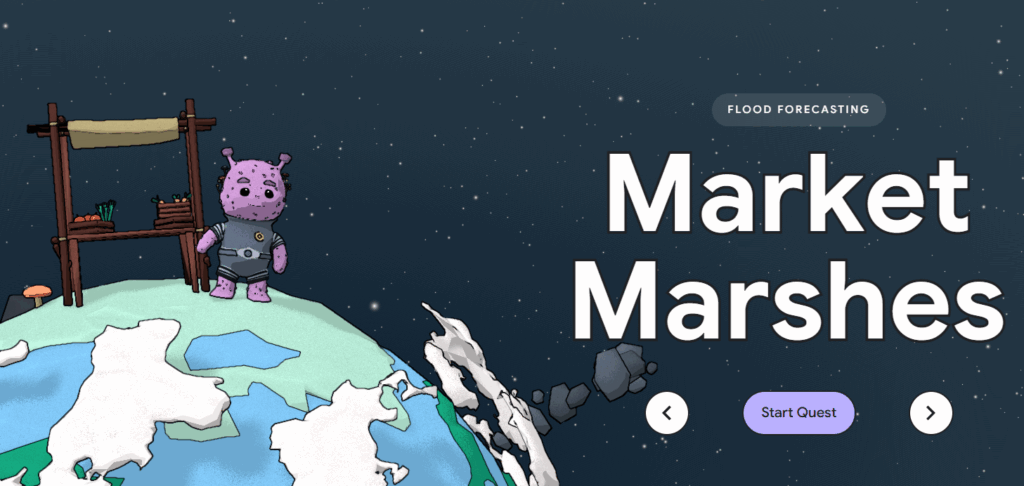
Thus, AI Quests is not just an educational program, but part of Google’s strategic initiative to create a responsible and conscious approach to artificial intelligence use.
.
The game is available on the official website: AI Quests by Google
All content provided on this website (https://wildinwest.com/) -including attachments, links, or referenced materials — is for informative and entertainment purposes only and should not be considered as financial advice. Third-party materials remain the property of their respective owners.


